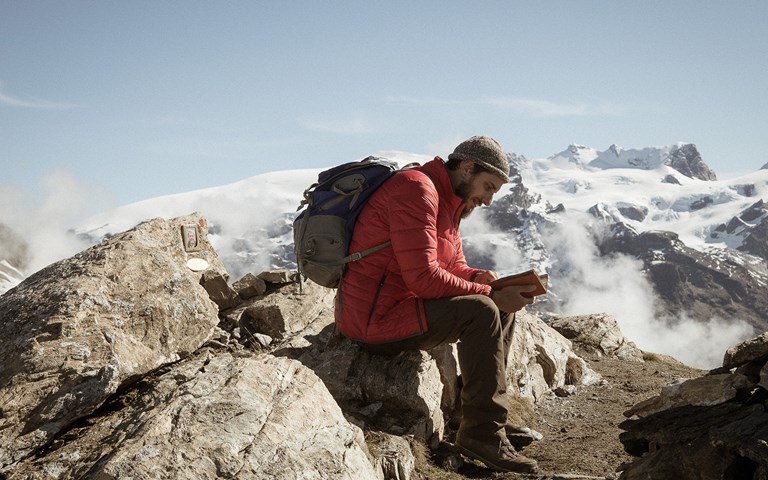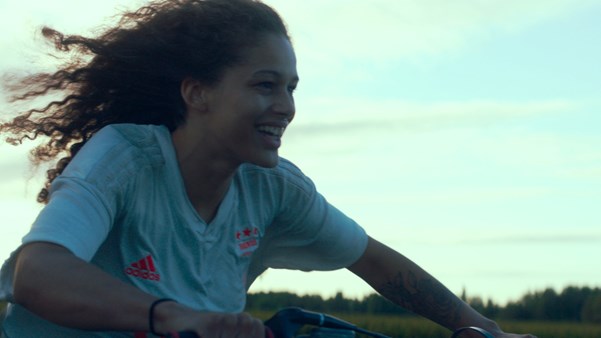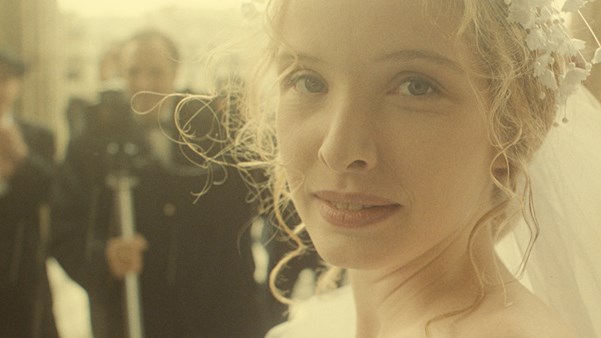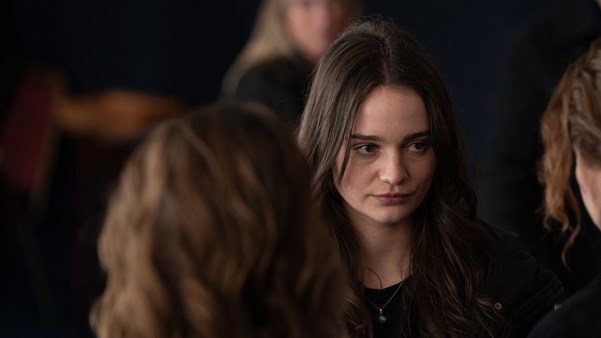Based on Paolo Cognetti’s bestselling novel, The Eight Mountains details the tumultuous friendship between Pietro (Lupo Barbiero as a boy, Luca Marinelli as an adult) and Bruno (Cristiano Sassella and Alessandro Borghi), who meet in a remote mountainous village and, over the decades, move between extreme closeness and total estrangement. Here, its directors Felix van Groeningen and Charlotte Vandermeersch speak to Rafa Sales Ross about the making of the film, and how this collaboration strengthened their personal relationship.

Rafa Sales Ross: Felix, you have a particular penchant for adaptations, having worked on The Misfortunates (2009), The Broken Circle Breakdown (2012) and Beautiful Boy (2018). Is there anything in particular that draws you to adapting pre-existing stories for the screen?
FELIX VAN GROENINGEN: I really think it's easier to adapt than to write something original. But I am a little conflicted now… I think I want to do something original for my next film, to challenge myself and be more creative. Doing something original is like jumping straight into deep water. It’s scary, but it can also be more gratifying at times.
RSR: Was it a challenge to adapt a story so far removed from the rapid pace of contemporary life?
CHARLOTTE VANDERMEESCH: It was a gift. We started writing right when the first lockdown hit in March 2020. So we were confined to our desks, which made it even more beautiful to work on this story because you go on a journey in your mind. This idea that we are part of nature is deeply rooted in the film and in the book. Its author had already moved to the mountains. He was sick of city life. He had depression and wanted to just live the purest life possible – chopping wood and making a fire. I grew up in the countryside and Felix also had this place high up in the mountains in France where his family would spend the summer months, and the book echoed this atmosphere.
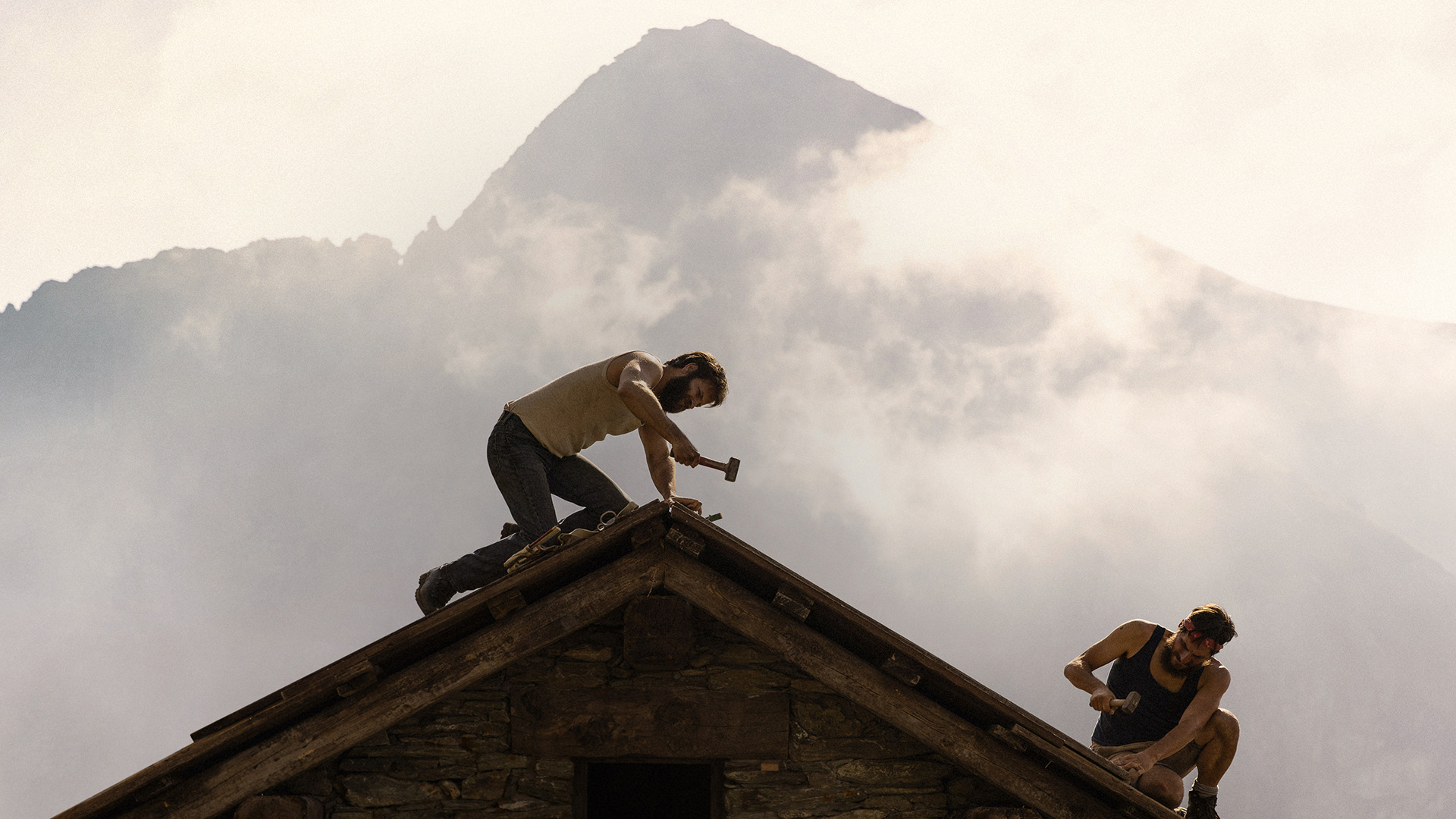
RSR: This is your first film in Italian. How did you prepare for that? Were there language experts on set?
FVG: We wanted to shoot it in Italian, that was a choice we made when we first read the book. There were so many Italian elements that we felt were important to preserve. So we thought: should we learn Italian? Would that help us best present these elements? Yes. So we learned Italian for the movie, we didn’t speak the language before.
RSR: There is also a specific Italian dialect present in the film.
FVG: Yes, absolutely. We had a dialect coach – well, not quite, the guy who worked with us was actually the father of the boy who plays little Bruno. He’s a mountain guy, who has lived the very life of Bruno, so he became not only a dialect coach but an inspiration for the actors. And Charlotte was really good with this part of the process, because I personally have a hard time deciphering dialects, but she has a knack for it and spent years working on it.
CV: I think we were a good duo on set. Since we were making an Italian-language film, it was a big challenge to listen well, so we had to be extremely focused. We had to be able to notice if the actors were putting a strange stress on a word, and we had to direct them on all these little things. I really love this part of the process, I think I have a musical ear.
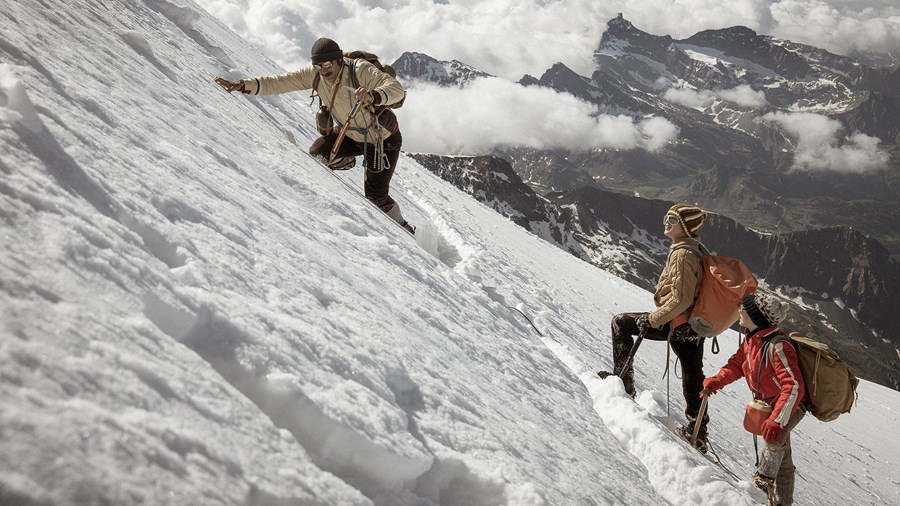
The Eight Mountains (2022)
RSR: This is your first time working together as co-directors. How was that for you and why did you feel it was the right time to work together?
FVG: It happened because it had to happen. We weren’t intending to direct together, we wrote together, which was something we had wanted to do for a while. We had collaborated in different ways before and we always loved it, and then this project came along and it seemed like the right project to direct together because Charlotte really loved it.
CV: I read the book and said to him: ‘If you are looking for something to work on, I think you should choose this.’
FVG: By the time we finished the first draft, at the end of the first lockdown, we had become a bit estranged, even though we had a young son and had been together for 13 years. We were just missing things, but we spent a lot of time together and realised that, by joining forces, we made something great. Us writing together added so much to the story, being parents and lovers and friends brought so much to it that I just felt she had to co-direct, so I asked her and, even though we had no idea what we were getting ourselves into, we only got better.
CV: It was very challenging because we did everything together for two and a half years, which is a lot. But it was also very beautiful. We really healed through the process.
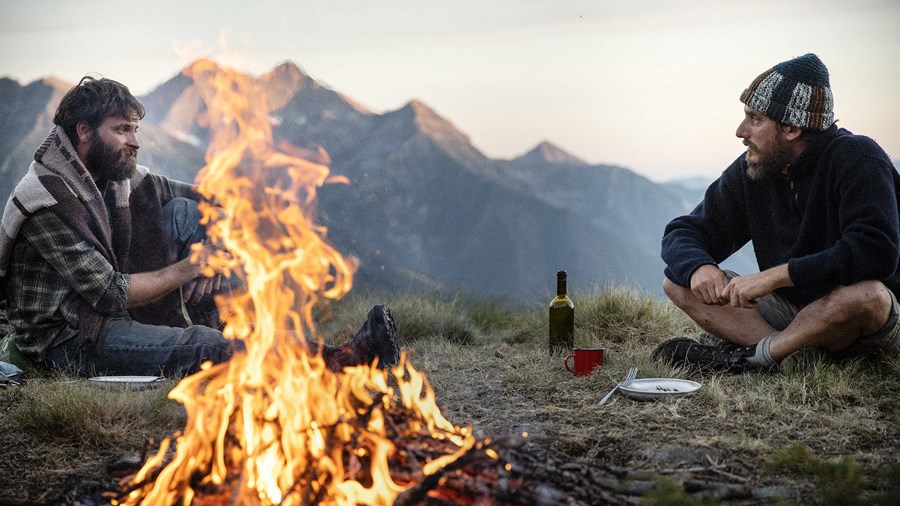
The Eight Mountains (2022)
RSR: Charlotte, it is interesting that you come from an acting background, given that the film has two incredibly strong central performances. How did you work with the actors and how did your previous experience influence the process?
CV: We wrote a very detailed script. We talked a lot about how Bruno and Pietro would be together, how and when they would sit next to each other, what they were able to say to each other, and what it meant every time they met. We wanted it to be subtle.
We had an incredibly long casting process to find the right actors and put them in the right roles, because, initially, the actors were attracted to the opposite roles. Luca [Marinelli] felt naturally inclined towards Bruno, and it took us four or five months to realise that it should be the other way around. And then it was magic. The two are very good friends in real life, they had just made a great movie together in Italy [Don’t Be Bad, 2015], shared this incredible chemistry and were looking for a project to work on next. They can just have silence between them and understand each other, there’s something really essential about that, something you can’t force. With the kids, we made them run together, and from that moment, there was an explosion of love and energy in the room. We just knew.
RSR: The film is visually stunning, with beautiful work by cinematographer Ruben Impens. Usually, when you see such vast images of nature onscreen, it’s through the widest possible shots. How was the process of filming the landscapes and what made you go with a 4:3 format?
FVG: The 4:3 was a mystery to us. It happened during preparation when we said we wanted to do this in cinemascope because of the nature of the film, and then we started talking a lot about framing and how we wanted the film to feel original. We were very conflicted at first. Then, all of a sudden, this idea to shoot in 4:3 came up because I saw pictures taken by mothers in the place where we were shooting and they were all in 4:3. It just made sense. I showed them to Ruben and Charlotte, and they were interested in how much you could do with the aspect ratio, how you could frame things vertically and how you could explore the limited space on each side.
We tested the format a lot, we shot things and saw it in a cinema. It was a major decision, but it felt like the right one. We realised that with the 4:3, you have a tendency of leaning forward, of being drawn into the picture, you’re attracted to the centre of the image, and there was something really delicate about that. As for filming in the mountains, there was a lot – a lot! – of trial and error. We went up to try things with a very small, limited crew and found a way to make it work within our constrained choices.
WATCH THE EIGHT MOUNTAINS IN CINEMAS
